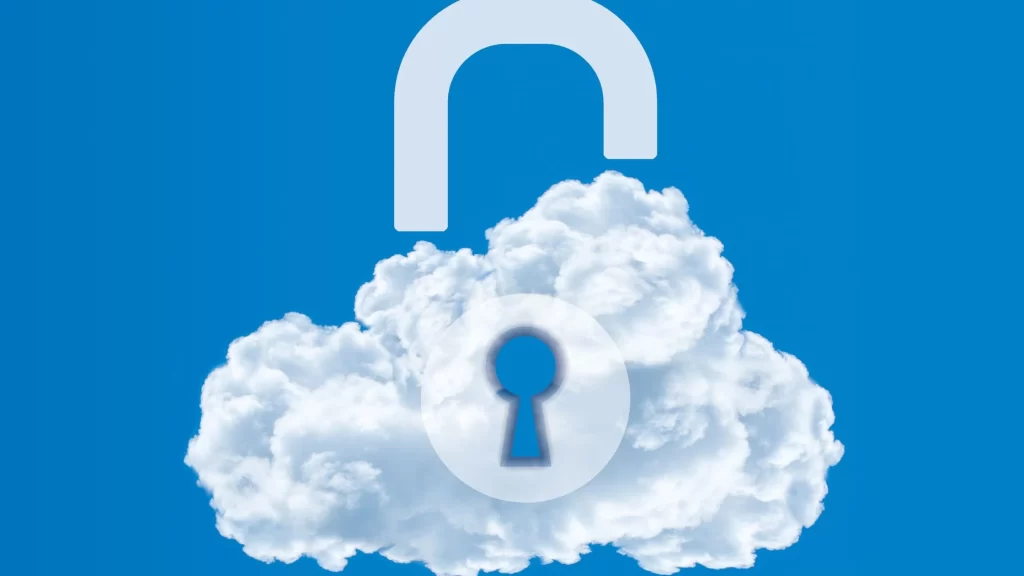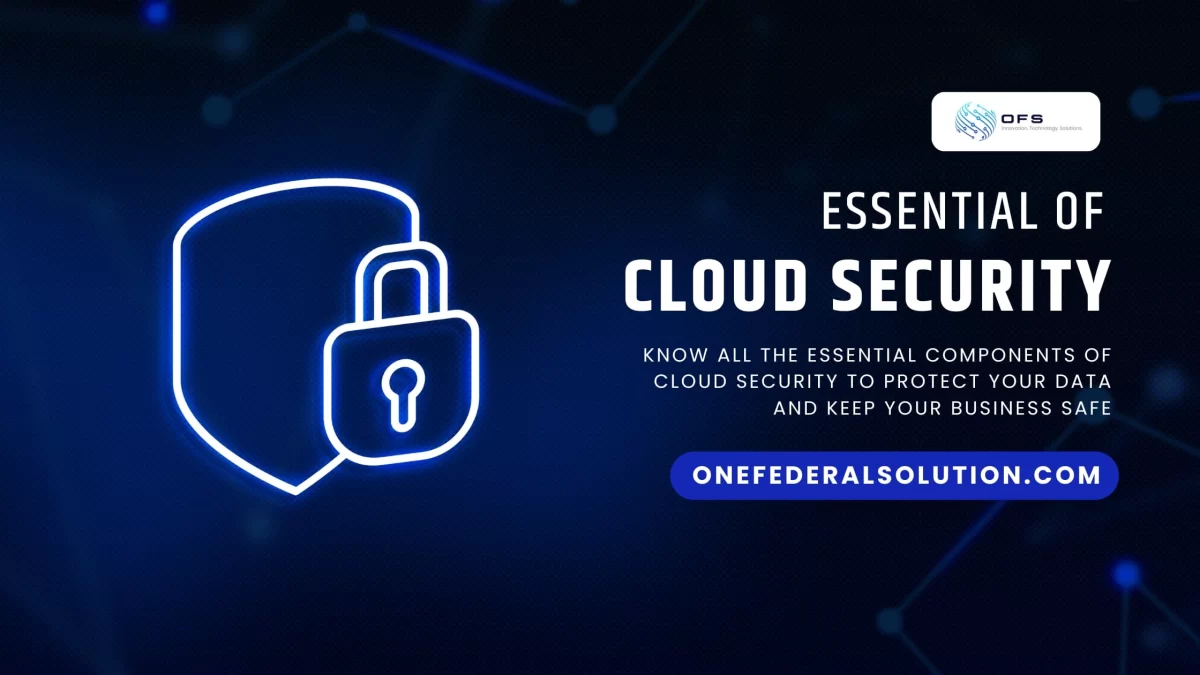Cloud computing has become a norm. From storing files on Google Drive to using advanced cloud-based tools, you must be using cloud computing in one form or another in your business.
However, as with any technology, security risks are always a concern. Cloud computing is no exception. Over the years, we’ve witnessed numerous cloud security incidents. This makes understanding the key components of cloud security more important than ever. Let’s get started!
Protecting Data with Cloud Security

Cloud security is essential because businesses rely on their data to succeed. If this information gets lost, stolen, or damaged, it can cost a business a lot of money or even its reputation.
Certified cloud security professionals play a big role in helping businesses stay safe. They have the training and knowledge to handle even the trickiest problems with cloud security. While businesses might not always understand the technical details of cloud security, they can trust these professionals to keep their data secure.
5 Key Security Elements of Cloud Computing
1. Identity and Access Management (IAM)
IAM is like a security guard for the cloud. It makes sure only the right people can use the right parts of the cloud. It keeps track of who is logging in and what they’re doing. By giving each person only the access they need and watching for anything unusual, IAM helps stop bad things like data theft.
2. Network Security
Network security helps build a strong shield around the data traveling to the cloud. Tools like firewalls and VPNs act like gates and tunnels to make sure only safe traffic gets through. Some cloud providers even offer private networks to make things extra safe. This protects your data as it moves from place to place.
3. Data Security
Data security makes sure your information is safe no matter where it is—stored, used, or on the move. Things like encryption (turning data into a secret code) and secure storage help keep it protected. This is super important to avoid problems like hackers stealing data or breaking laws about privacy.
4. Endpoint Security
Endpoint security takes care of the devices people use, like laptops, tablets, and phones, to get into the cloud. Since many people work from home or use personal devices, it’s important to protect them. Antivirus software and firewalls help, and workers should also learn how to spot phishing scams or other dangers.
5. Application Security
Application security is all about keeping apps safe from hackers. This is done by writing good, secure code and checking for any weaknesses regularly. Special tools, like web app firewalls, help stop attacks. Apps made just for the cloud, like containers or serverless functions, also have their tools to stay safe.
Work with Cloud Security Professionals

Many organizations or businesses hire certified cloud security professionals to help with their cloud security. These are experts who know all about keeping data safe in the cloud. They can teach businesses how to set up strong security systems. Certified professionals also keep watch for any strange activity, like if someone tries to break into the company’s cloud system without permission.
We cannot overlook the importance of backups, neither in this blog nor in data security practices. The true value of having a backup often becomes clear only when your data is accidentally deleted or damaged. Backups serve as your ultimate “Plan B,” providing a safety net and ensuring peace of mind even in the face of unexpected data loss.
Employee Training is Still Important
Many security breaches happen due to mistakes made by employees, such as weak passwords, phishing attacks, or improperly managing cloud resources. Training helps employees understand these risks and equips them with the knowledge to avoid common mistakes.
Cloud systems often involve shared responsibility between the cloud provider and the business. While providers ensure the infrastructure is secure, it is the company’s responsibility to manage access, monitor usage, and safeguard data. Without proper training, employees may not understand their role in this shared responsibility, leaving the system vulnerable.
Regular training sessions also strengthen awareness of evolving threats. Hackers constantly develop new ways to target cloud systems. By keeping employees updated on the latest risks and teaching them best practices, businesses can stay one step ahead of potential cyberattacks.
Additionally, training creates a security-first culture. When employees are aware of the importance of cloud security, they are more likely to practice safe online behaviors. From identifying phishing emails to reporting suspicious activity, well-trained staff serve as the first line of defense against breaches.
The Future of Cloud Security

As technology evolves, so does the need for even better cloud security. Businesses will continue to store and process more data in the cloud, making it more important than ever to stay protected. Certified cloud security professionals will remain an important part of this future as they work on new ways to safeguard the cloud.
Businesses that take cloud security seriously today will be prepared for the challenges of tomorrow. Whether it’s encrypting data, using access control, keeping backups, or hiring experts, every step plays an important role in building trust and keeping businesses secure.
Key Takeaways
- Cloud security is all about keeping business data safe from threats.
- Encryption, access control, and firewalls are some essential tools to protect information.
- Certified cloud security professionals are experts in safeguarding cloud data.
- Businesses, big or small, benefit from cloud security to protect their files and customers.
- Regular updates, employee training, and backups help create a strong security system.
Cloud security may seem complex, but it’s as simple as locking the door to keep your valuables safe. When businesses work with experts and follow good practices, they make their cloud castle stronger and more secure. And in doing so, they protect not just their information but also their customers’ trust.
You can count on our security professionals at OFS to protect your important data. We have been safeguarding businesses like yours for more than 15 years from all types of cybercrimes and threats. Let us know how we can help you reinforce your cloud infrastructure.

